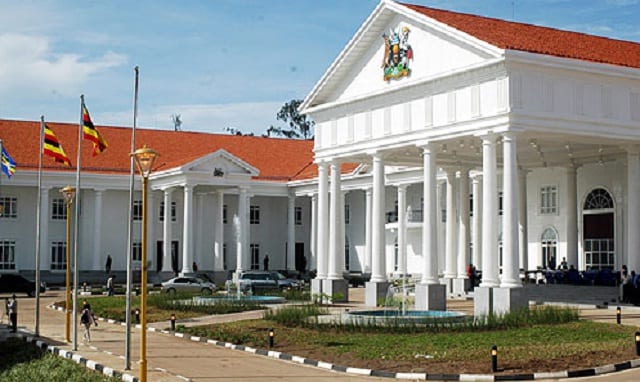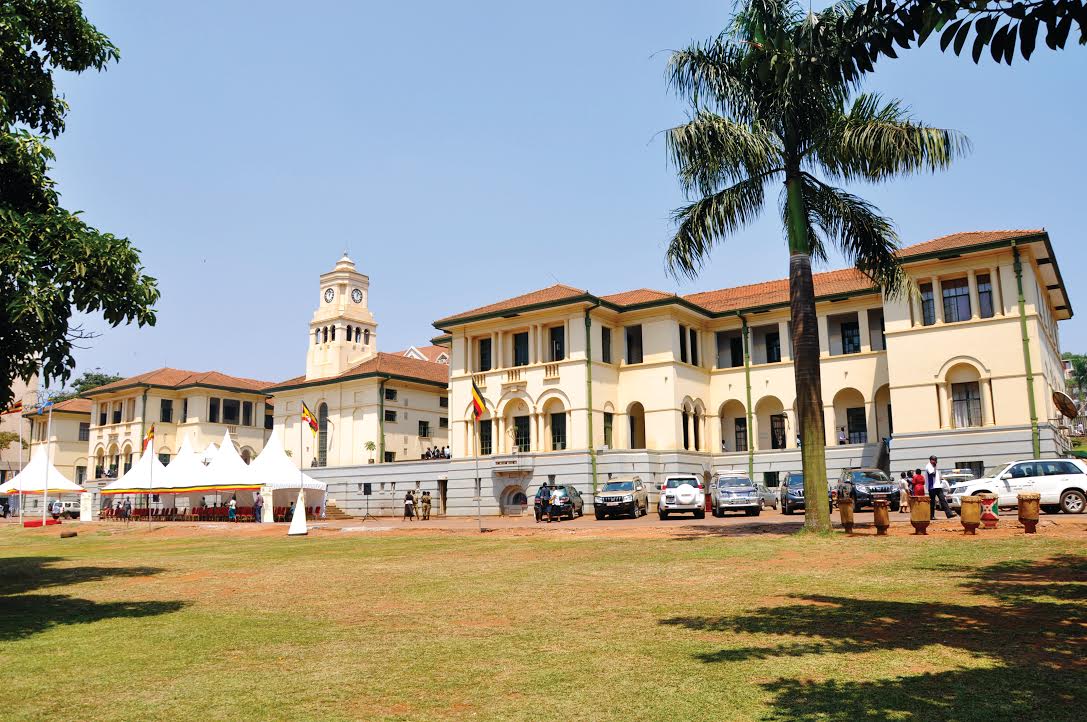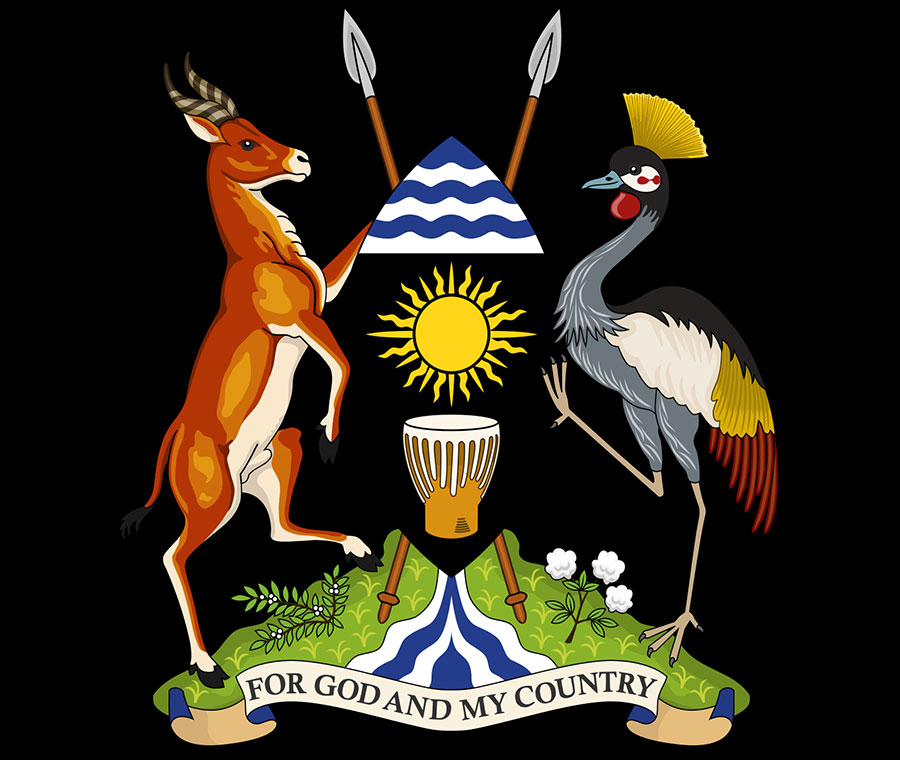Useful information
Uganda, commonly known as the ‘Pearl of Africa’ lies at the Equator and is located on the East African plateau, lying mostly between latitudes 4˚N and 2˚S (a small area is north of 4˚), and longitudes 29˚ and 35˚E. It is bordered by Kenya to the east, South Sudan to the north, Democratic Republic of the Congo to the west, Rwanda to the southwest and Tanzania in the south.
About 37,000 sq. km of this area is occupied by open water while the rest is land. The southern part of the country includes a substantial portion of Lake Victoria, which it shares with Kenya and Tanzania.
Uganda is inhabited by dozens of ethnic groups and is a home to 56 tribes and about 9 indigenous communities that formally came to be recognized in the 2005 constitution amendment of the 1995 Constitution. These include Baganda, Banyankore, Basoga, Bakiga, Iteso, Langi, Acholi, Bagisu and Lugbara among others.
English is the official language of Uganda. In Kampala, the commonly used languages are English and a local dialect, Luganda.
Swahili, a widely used language throughout East & Central East Africa, is Uganda’s second official national language. Other major languages spoken include; Runyankore, Lusoga, Ateso, Luo, Lugisu, Lugbara.
Uganda has 4 mobile telephone service providers; MTN, Airtel, Africell, and UTL, which provide both voice and internet. Their shops are widely available.
Every SIM card user in Uganda is expected by law to be registered for activation. Registration is done at the point of purchase and you will require a valid passport to complete the process.
The Uganda Currency consists of banknotes and coins and is denoted in Uganda Shillings (UGX) with these denominations are currently in circulation:
Banknotes: 1,000 | 2,000 | 5,000 |10, 000 | 20,000 | 50,000
Coins: 50 | 100 | 200 |500 | 200 | 1,000
Foreign currency exchange can be done on arrival at Entebbe International Airport, at any bank branch, or at a number of forex bureaus that are widely available in Kampala and major towns. There is no fixed exchange rate and all major currencies and recognised traveler’s cheques are freely convertible into the Uganda Shilling.
Major credit cards including VISA and Mastercard are accepted in most hotels and restaurants, supermarkets, pharmacies and convenience stores, as well as bank at ATM’s.
Banks are generally open from 0900hrs to 1600hrs on weekdays and from 0930hrs to 1300hrs on Saturdays and are closed on Sundays. Most banks have cash dispensing machines accepting Visa and Master Cards.
Bureau de change facilities are widely available. Most internationally recognized currencies and travellers’ cheques can be exchanged at commercial banks, hotels and at Entebbe International Airport. Credit cards are not widely used in Uganda.
Offices and businesses are generally open from 0800hrs to 1700hrs on weekdays and if open on Saturday or Sunday, from 0900hrs to 1300hrs. However most private businesses operate flexible and longer working hours.
The commonly used public means of transport in and around Kampala is the 14-seater taxi (Matatu) that are boarded from designated taxi parks in downtown Kampala. There are also buses, which operate on selected routes in the city.
Visitors to Uganda find it more convenient to use cab services like Uber, Bolt (formerly Taxify), Yellow Taxi and Friendship Taxi among others, which can be accessed online and paid for using credit cards. Hotels can also arrange taxi services on request.
The power supply in Uganda is 240 V AC, 50 Hz. Standard electrical sockets are rectangular and three pronged. Delegates are advised to carry the necessary adapters
Ugandan cuisine consists of traditional and modern cooking styles, practices, foods and dishes, with English, Arab and Asian (especially Indian and Chinese) influences. Like the cuisines of most countries, it varies in complexity, from the most basic, starchy filler with a sauce of beans or meat, to several-course meals served in high-end restaurants.
Many dishes include various vegetables, potatoes, yams, millet, wheat, rice, bananas and other tropical fruits. Chicken, fish (usually fresh, but there is also a dried variety, reconstituted for stewing), beef, goat, pork and mutton are all commonly eaten. There is an amazing variety of tropical fruits in every corner of the country.
Illustration of King Kamurasi, Omukama of Bunyoro glancing through a Bible. Credit: Bayard, Trichon and Guillaume, 1864

National Flag
Uganda National Anthem
1. Oh Uganda! may God uphold thee,
We lay our future in thy hand.
United, free,
For Liberty
Together we’ll always stand.
2. Oh Uganda! The land of freedom.
Our love and labour we give,
And with neighbours all,
At our country’s call
In peace and friendship, we’ll live
3. Oh Uganda! The land that feeds us,
By sun and fertile soil grown.
For our own dear land,
We’ll always stand,
The Pearl of Africa’s Crown.
- President
- Vice President
- Prime Minister
- Cabinet Ministers
- Magistrate Courts
- High Court
- Court of Appeals (Constitutional Court)
- Supreme Court, headed by the Chief Justice
- Parliament (National Assembly), headed by the Speaker www.parliament.go.ug



Uganda is endowed with substantial natural resources; extremely fertile soils, regular rainfall, substantial reserves of recoverable oil and small deposits of copper, gold and other minerals.
Following the 1986 liberalization of the economy, Uganda has experienced accelerated growth of over 6% in the past 30 years in all sectors of the economy, especially in private sector investment that has improved efficiency of service delivery.
Agriculture however, remains the Uganda’s backbone, employing close to 60% of the labour force and providing approximately half of the country’s export earnings. For a long time, coffee was the key export alongside tea, tobacco and cotton, and these export crops made up the bulk volume and value of Uganda’s exports. However, in recent years Uganda has come to rely on non-traditional exports like flowers, fish and tourism.
Accelerated regional co-operation has seen an increase in Uganda’s export volumes to African countries, with the bulk destined to Common Market for Eastern and Southern Africa (COMESA) and East African Community (EAC) countries, with the rest going to the European Union (EU)In line with Uganda Vision 2040, Uganda is on the path to transformation from low income to middle-income status.
For more information visit:
www.ugandainvest.go.ug
www.psfuganda.org


